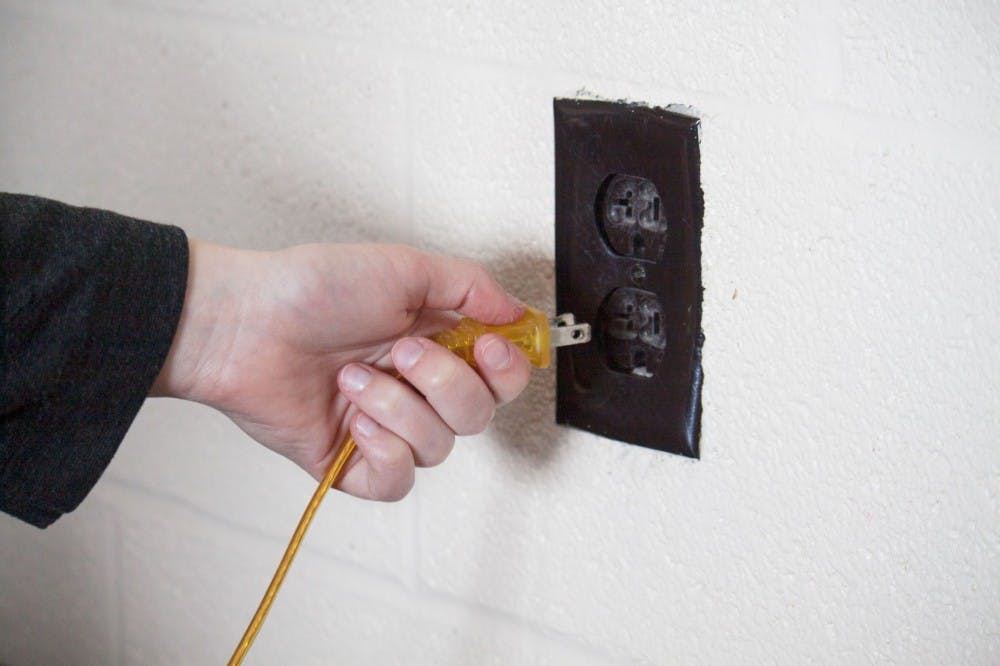By Julia Oller | Echo
Darkness shrouded residence hall lobbies and hallways this week, but it wasn't #tupoweroutage2015.
The competition began Monday and continues until March 20. The annual Energy Competition allows students a chance to compete for cash prizes while practicing sustainability. Taylor Sustainability Assistants (SAs) recorded the typical energy use of each dorm the week before the competition, and the maintenance department tracked water usage. They will continue to monitor the readouts throughout the competition in order to observe change.
The residence hall that shows the greatest reduction in energy use by the end of the competition will win $500. The second and third place halls will also receive money. The amount has yet to be determined. The midway standings will be posted in the DC today, and the winner will be announced next Friday.
Elise Wetherell, graduate assistant for sustainability, said that each halls usage is measured against itself, giving everyone a fair chance at winning the competition.
"It doesn't matter if you've got a dorm that does terrible in general or a dorm that's really great at energy conservation," Wetherell said.
This is her first year at Taylor, and Wetherell said that upon arriving on campus she heard from students concerned that there was sabotage-such as turning on the showers in other dorms-involved in previous competitions. If a student is caught cheating, his or her dorm will be disqualified.
Wetherell hopes that the competition will be fun, but even more importantly, she wants to see students create long-term habits that extend beyond these two weeks.
"Some people go to extremes to win, which is great," she said. "But this is a practice that can help you out in the long run, both in being a good steward and caring for others but also if you want to save money when you're out of college."
For the last two years, Gerig Hall won the competition due to residents' willingness to go the extremes Wetherell mentioned. Doing homework in the dark might save the most energy, but according to sophomore SA Meghan Sulka, there are plenty of easier ways to practice environmental responsibility.
She suggests unplugging power strips, setting thermostats several degrees lower and showering in the amount of time it takes to listen to a song.
Sulka recognizes that two weeks worth of sustainability efforts won't make much of a dent in Taylor's overall energy usage, but she believes that it's a good place to start.
"Sustainability is involved in your everyday life more than you think," she said.
Wetherell agreed that the purpose is more important than the prize.
"In the end, I don't care about the competition," she said. "I care about people understanding that these ideas are more important than that."
To receive competition updates and tips on practicing sustainability, follow @tu_sustainability on Instagram or like the Taylor University Sustainability Facebook page.




